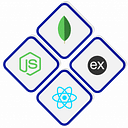Difference Between Scala And Java
Java and Scala are two of the most popular programming languages in the world today. Both languages have their own strengths and weaknesses, and choosing between them can be a difficult decision. In this blog post, we will explore the differences between Java and Scala and help you decide which language is best for your needs.
Java is a mature, general-purpose programming language that has been around since the mid-1990s. It is widely used for developing enterprise applications, web applications, mobile applications, and games. Java is known for its platform independence, which means that programs written in Java can run on any computer or device that has a Java Virtual Machine (JVM) installed. Java is also known for its stability, security, and performance.
Scala, on the other hand, is a relatively new programming language that was first released in 2003. Scala is a hybrid language that combines features of both object-oriented and functional programming. It runs on the JVM, just like Java, but it also has its own standalone compiler that can compile Scala code to native machine code. Scala is known for its concise syntax, powerful type system, and support for functional programming.
Is Scala better than Java?
Scala has an exact syntax, eliminating boilerplate code. Programs written in Scala require less code than similar programs written in Java. It is both an object-oriented language and a functional language. This combination makes Scala the right choice for web development.
Is Scala easier to learn than Java?
Although Scala programming is slightly more complicated than Java, one line of Scala code can easily replace twenty lines of “simple” Java code. Thus, Scala allows developers to write concise and compact code. However, Java is more beginner-friendly with an easy learning curve as compared to Java.
Let’s now compare Java and Scala in terms of some important factors:
Syntax: Java has a verbose syntax, which can sometimes make code hard to read and understand. Scala, on the other hand, has a more concise syntax that allows developers to write code more quickly and easily.
Type System: Java’s type system is static and strong, meaning that type checking is done at compile time and errors are caught before the code is executed. Scala’s type system is also static and strong, but it is more powerful and flexible than Java’s. Scala’s type system includes features such as type inference and higher-order types, which allow developers to write more generic and reusable code.
Functional Programming: Functional programming is a programming paradigm that emphasizes the use of pure functions and immutable data structures. While Java supports functional programming to some extent, it is not a first-class citizen in the language. Scala, on the other hand, has strong support for functional programming and provides features such as pattern matching, higher-order functions, and immutable data structures.
Concurrency: Concurrency is the ability of a program to perform multiple tasks simultaneously. Java has built-in support for concurrency through the java.util.concurrent package, which provides classes for thread management, synchronization, and atomic operations. Scala also has built-in support for concurrency, but it takes a different approach than Java. Scala uses the Actor model of concurrency, which provides lightweight threads called Actors that communicate with each other through messages.
Community: Java has a large and mature community of developers and users, with a wealth of libraries, tools, and frameworks available. Scala’s community is smaller than Java’s, but it is growing rapidly and is known for its enthusiasm and innovation.
Both Java and Scala are powerful programming languages that have their own strengths and weaknesses. Java is a mature, stable language that is widely used in the industry and has a large community of developers. Scala is a more modern language that combines features of object-oriented and functional programming and has a concise syntax and powerful type system. If you are looking for a language that is well-suited for enterprise applications and has a large ecosystem of tools and frameworks, then Java may be the right choice for you. If you are interested in functional programming and want a language that is concise, powerful, and flexible, then Scala may be the better choice. Ultimately, the choice between Java and Scala will depend on your specific needs and preferences as a developer.
